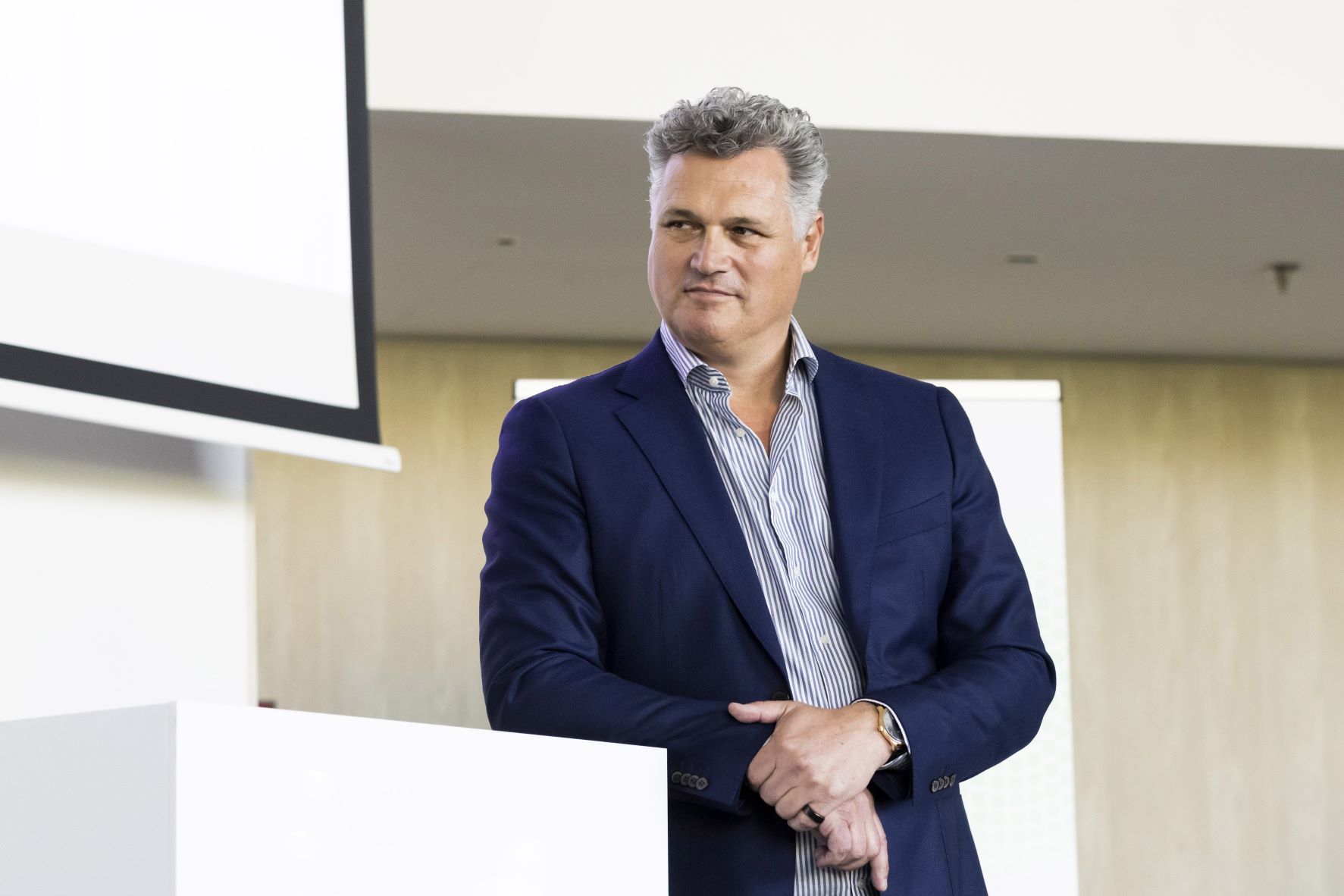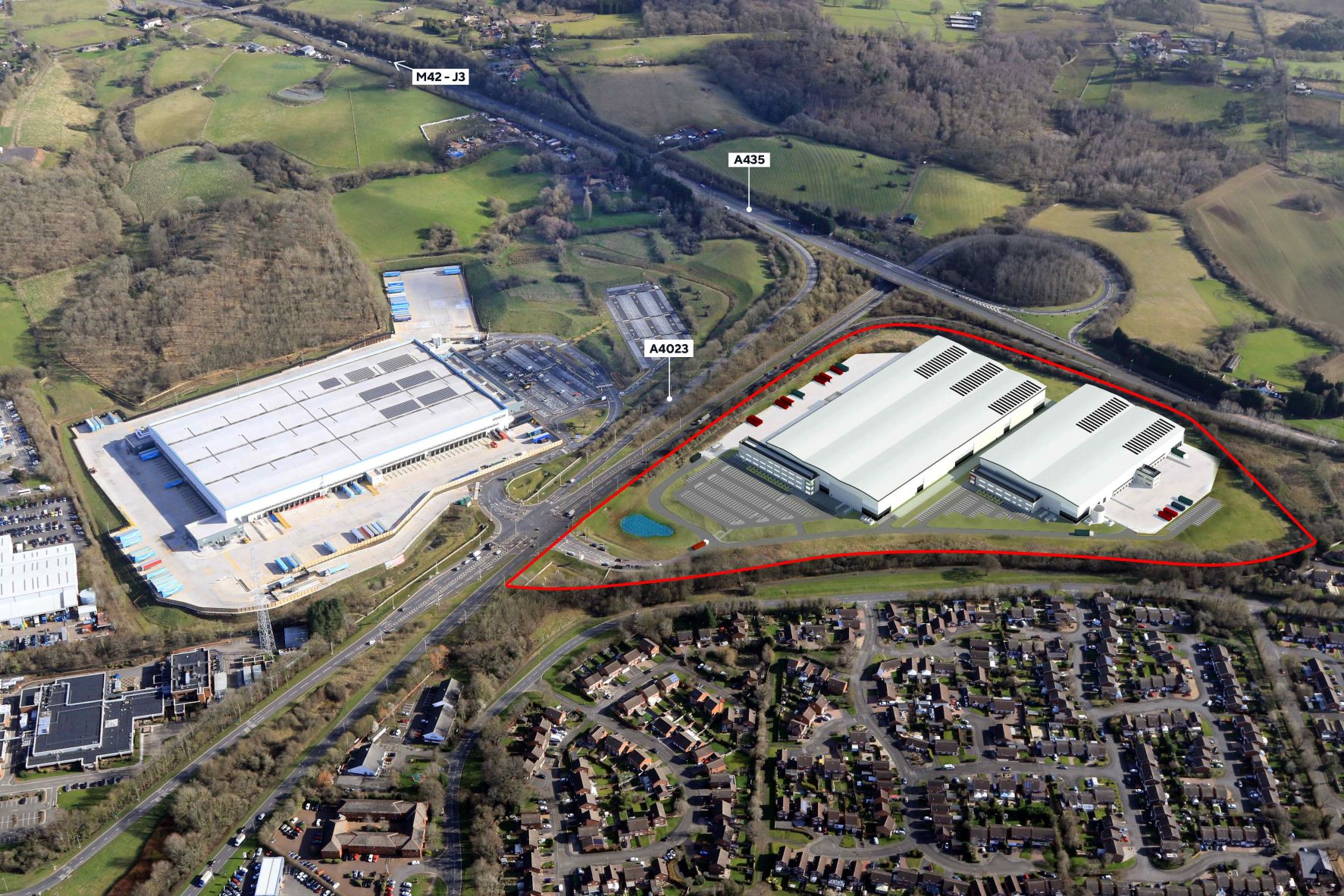Briton Neil Humphrey (pictured) has been awarded the accolade of TRATON Logistics Leader of the Year 2022, while the pioneers of the pallet’s triumph in logistics have been inducted to the Logistics Hall of Fame.
Posthumously, George Raymond Sr. (1890-1967), founder of the American intralogistics solutions provider The Raymond Corporation and inventor of the double-faced wooden pallet, patented in 1939, will be inducted to the Logistics Hall of Fame. His pallet is considered the world’s first professional wooden pallet. Also inducted is Oliver Richter (1920-2014), an Australian who, as trade manager of Brambles in the 1960s, discovered the potential of a closed rental pool for load carriers and successfully established today’s Commonwealth Handling Equipment Pool (CHEP) system as a closed rental pool internationally.
The UIC (Union Internationale des Chemins de Fer) was responsible for introducing the Euro pallet in 1961. Within the framework of a working group, the International Union of Railways promoted the standardization of pallets and obliged all signatories of an agreement to comply with the standards to manufacture as well as to repair the Euro pallet.
In the mid-1970s, the Gütegemeinschaft Paletten, today’s National Committee of EPAL, partially took over the distribution and quality assurance of the Euro pallet. The European Pallet Association e.V. (EPAL), which was formed from this in 1991, has successfully developed the pool idea and ensured the quality of the Euro pallet. Both associations receive a place in the Hall of Fame on behalf of their networks behind.
“The invention of the pallet, and even more so the establishment of functioning pallet pools, is one of the greatest milestones in logistics, as significant as the container invented by Malcolm McLean. Without standardized pallet systems, high-performance logistics in the 21st century would be inconceivable,” says Anita Würmser, executive Jury Chairwoman of the Logistics Hall of Fame, explaining the decision of the jury.
After the introduction of pallets, the loading times of trucks and freight cars were reduced by up to 90%. The conveyor technology and shuttle systems in highly automated warehouses are all adapted to the 800 x 1200 x 144mm dimensions of the Euro pallet. Another advantage of the load carriers made of 11 planks, nine wooden blocks and 78 nails is that they can be repaired with low material costs and are fully recyclable at the end of their life cycle.
The pioneers of the pallet will be officially inducted to the Logistics Hall of Fame at a gala reception with German Federal Minister for Digital and Transport, Volker Wissing, on 29th November in the Wintergarten of the KaDeWe department store in Berlin.
Humphrey is Logistics Leader of the Year
The TRATON Logistics Leader of the Year Award will also be presented during the reception. This year, the trophy goes to Neil Humphrey, President, HAVI Supply Chain. The British manager is a committed leader of sustainable supply chain practices and digitalisation, an active networker and a tireless driver of digitalisation initiatives and pilot projects with new technologies.
The 58-year-old manager gained decades of experience in business management and supply chain with a strong focus on sustainability at Unilever and joined HAVI in 2017, where he has led the Supply
Chain Business Unit since 2018. Under his leadership, the company joined the Science Based Targets Initiative (SBTi) in 2019 – at the time as one of the first 10 supply chain service providers worldwide. HAVI committed to reducing carbon dioxide emissions by 40% by 2030 per tonne delivered. With the programme successfully underway and new global metrics established by the climate science community, HAVI is currently evaluating an increase in that goal.
Under Humphrey’s leadership, HAVI is also partnering with customers and suppliers to drive climate change action. For example, HAVI is helping leading foodservice brands to work toward ambitious emissions targets. It has also established a partnership with a commercial vehicle manufacturer to convert 70% of its European delivery fleet from diesel to alternative fuels; a target which was delivered upon in 2021.
In addition to supporting projects involving alternative fuels, green distribution centres or e-trucks, Humphrey and his team also have begun a hybrid truck pilot in Stockholm to roll out a carbon neutral hybrid truck solution across Europe. The trucks use their batteries to drive in the city, but use reprocessed frying oil as fuel outside the city. The used cooking oil is collected during deliveries to customer restaurants, reprocessed at a specialist facility, and eventually goes into the tanks of HAVI trucks – a perfect cycle.
The TRATON Logistics Leader of the Year Award recognises pacesetters and future leaders in logistics. It honours entrepreneurs and managers from the transport and logistics sector who have been particularly successful in promoting their companies or who have set a trend-setting impulse. The focus is on topicality and the benefits for the company as well as innovative strength, sustainability and entrepreneurial change. The award is presented by the Logistics Hall of Fame and donated by TRATON SE.
The decisive factor for acceptance as a member of the Logistics Hall of Fame, on the other hand, is that an achievement is not only beneficial to an individual company but has significantly and permanently advanced logistics beyond the boundaries of one’s own organisation or has become an industry standard. So far, 41 logisticians have made it into the international Hall of Fame.
The Logistics Hall of Fame was founded in 2003 and honours leading figures who have made outstanding efforts to promote the further development of logistics and supply chain management. This eternal pantheon is also designed to remind future generations of the achievements of these individuals in the service of logistics. The aim of the Logistics Hall of Fame is to act as a worldwide platform to publicise the performance capability of logistics and its importance for society.
The expert jury includes 70 well-known personalities from business, science, politics and the media in 13 nations. The UK media sector is represented by Logistics Business’ news editor Peter MacLeod.
The Logistics Hall of Fame is a non-profit initiative supported by the world of politics, associations, the logistics industry and logistics science. The patron is Dr. Volker Wissing, German Federal Minister for Digital and Transport.











